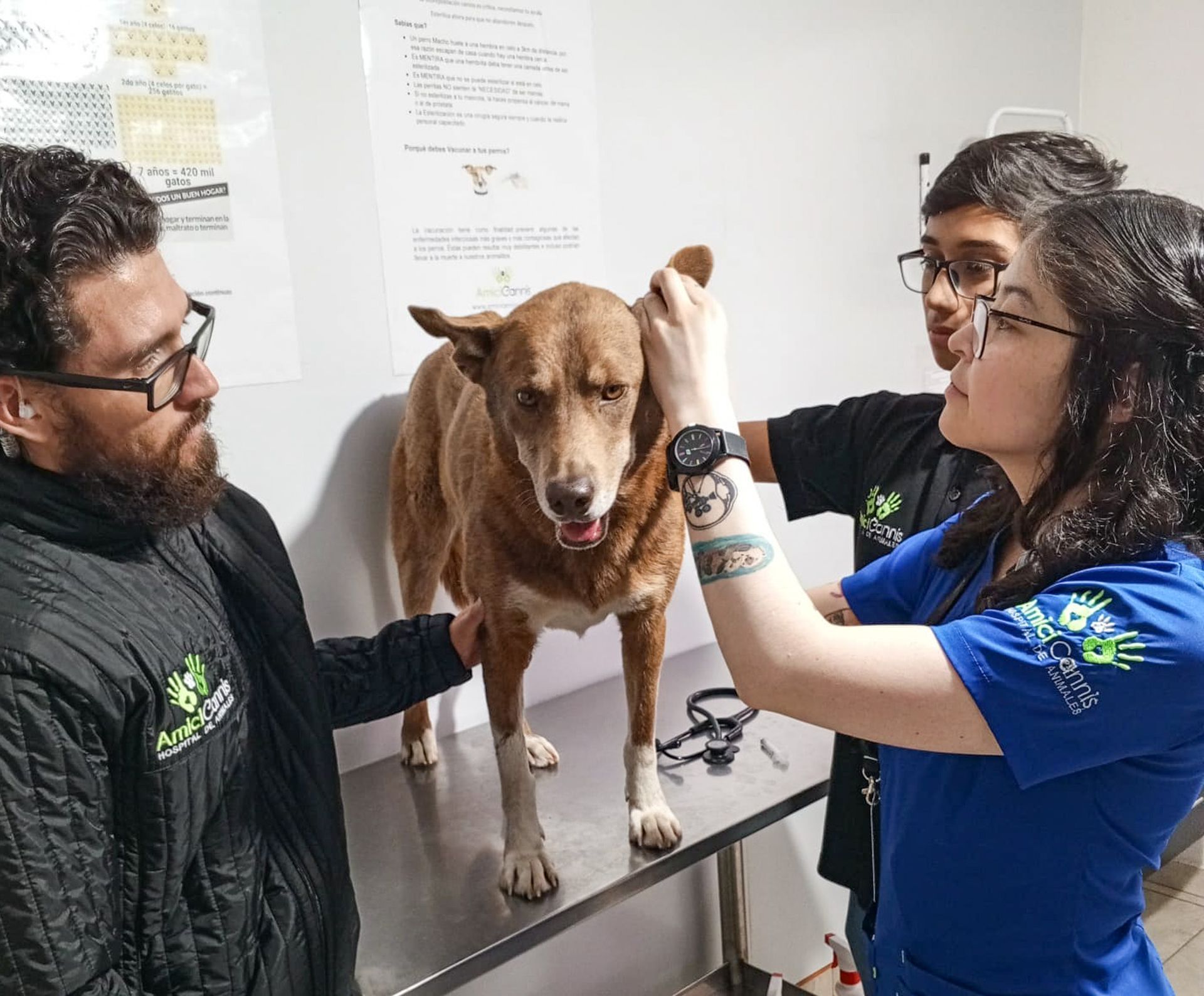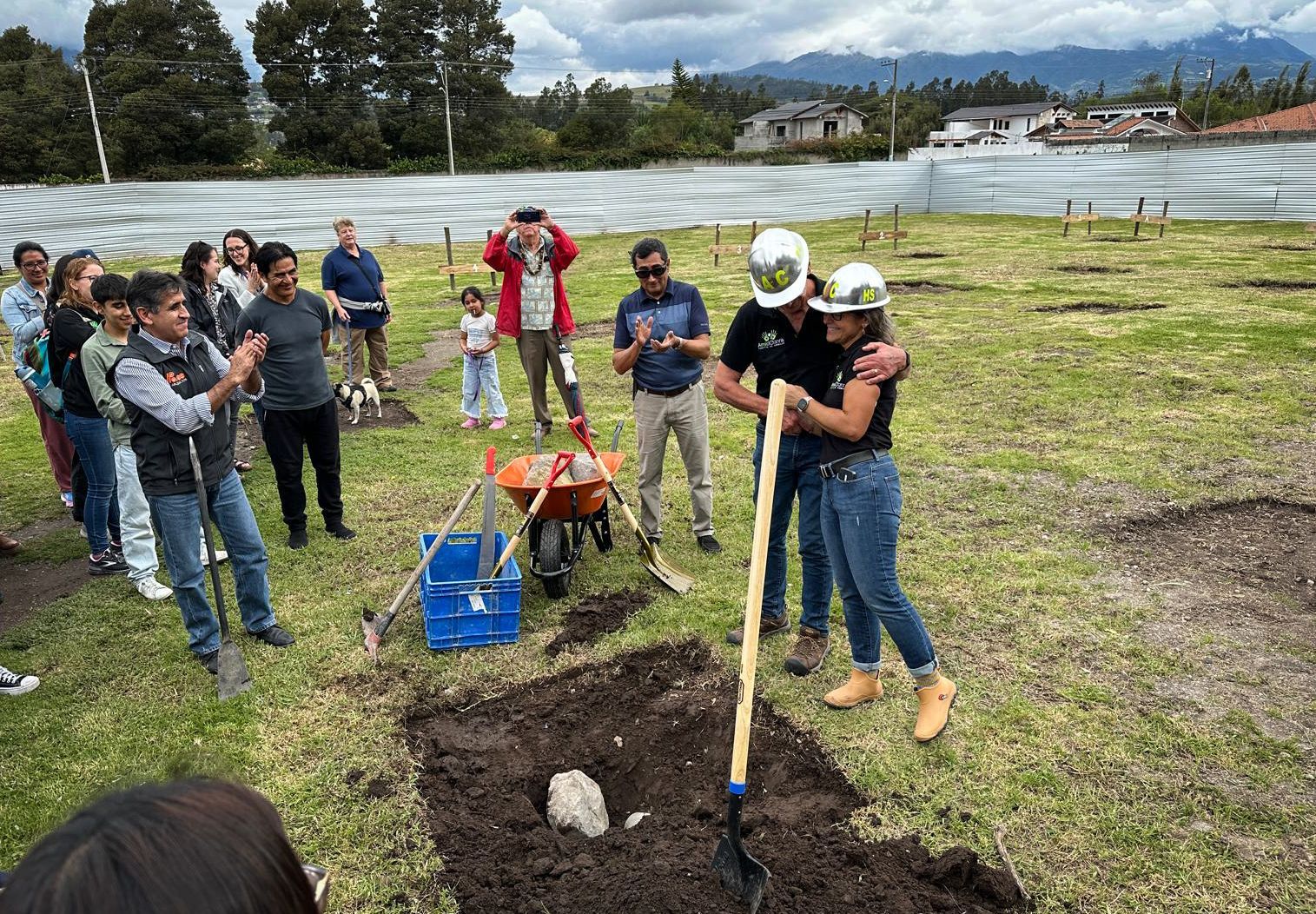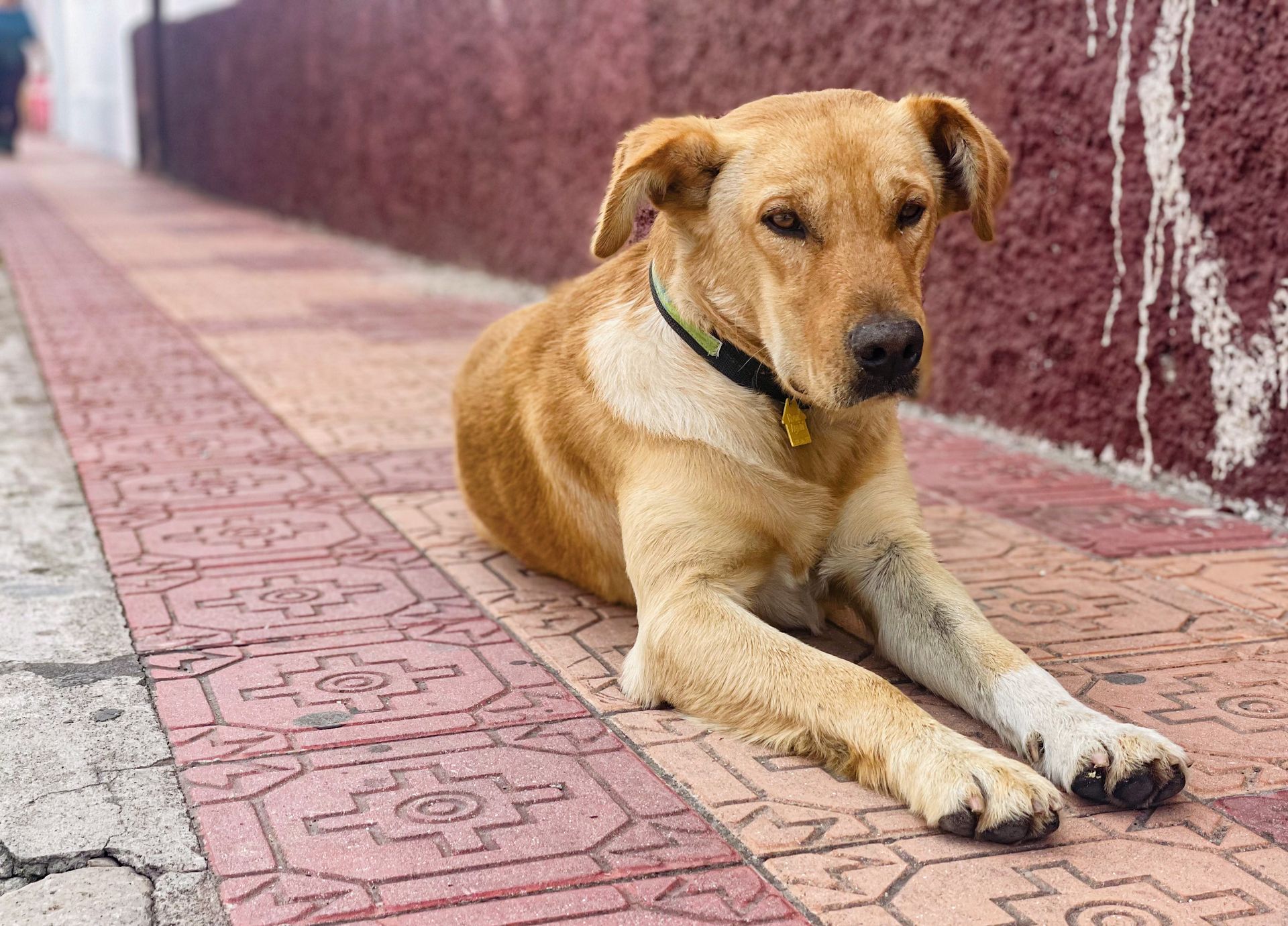Diagnosing street dogs

The challenge of not having a complete history.
At 3:30 pm on a Wednesday, a new case is logged into our doctors' WhatsApp chat. The case involves a community dog named Chocolate, a brown labrador mix who had already been neutered. The dog was picked up by our team after residents of the sector where he lives called us with concerns about his well-being. According to his caretakers, the dog has been coughing and seems to have difficulty breathing, mostly at night. They also report that the dog coughs for a long time then lies down on the sidewalk and wakes up with blood coming out of his nose. From time to time, they see him limp.
Chocolate has a history of coughing, and his records indicate that he was last treated for a cough in 2022 when he was given medication for the condition. When he first came into the hospital as a new patient, a distemper test was performed, and the results were negative. Distemper is a virus that kills many unvaccinated dogs in Ecuador.
Since Chocolate doesn't have a permanent home, no one could provide additional information about his physical condition, diet, recent accidents, or other types of information that could be useful in diagnosing his condition. Once the case is logged in, our team performs a thorough physical exam, takes head, neck, and chest X-rays, and draws blood for a complete blood count. Our doctors check for abscesses around the upper molars or tick-borne diseases, but the results are all negative. We prescribe antibiotics and medication to help boost Chocolate's immune system and continue with further tests to determine what is ailing him.
When animals get sick, they cannot tell us what is wrong, where it hurts, or what may have led to their welfare being compromised. Animal guardians play an essential role in responding to some of these questions on behalf of their animals. Animals that live in the street and have many caretakers often come into our hospital with no clear reason or answers until a physical exam is performed, followed by abundant testing.
At Amici Cannis, we don't turn any animal away, but emergency care for street dogs can be very expensive depending on the case and recommended treatment or action. This program depends on the support of donors like you. We do not receive any financial contribution from the government to ensure the welfare of the street dog and cat populations of Cotacachi.









